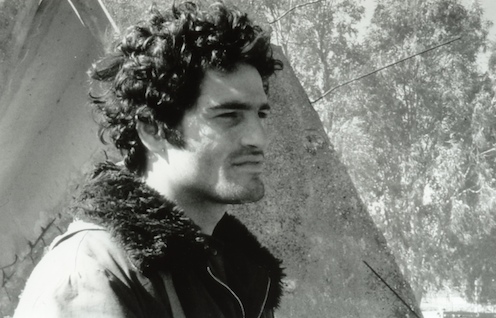Kippur

Full Description
It is October 5, 1973, and all is quiet in Israel as the country slows down to a halt for Yom Kippur (the Day of Atonement), the holiest of Jewish holidays. Suddenly, sirens blare and news spreads of an attack by Syria. The camera follows Weinraub from the arms of his lover that fateful morning to the chaos on the northern Golan Heights. Initial excitement and enthusiasm give way to weariness and disgust as he encounters the unglamorous and often monotonous face of war. Visually stunning depictions bring home the visceral feeling of combat while the use of silence conveys a kind of solitude and, paradoxically, heightens the experience of unbearable explosions and human cries. Based on his own memories of military service in the 1973 war, KIPPUR is Gitai’s most autobiographical and meditative film to date. It is a masterpiece that should be included in the pantheon of great anti-war films like THE THIN RED LINE and THE DEER HUNTER.
Certainly the most prolific and internationally renowned of Israeli directors, Gitai started out as an architecture student at the University of California, Berkeley, in the mid-1970s. At that time he began making short films and spent many an evening at the Pacific Film Archive (PFA).
Cannes, Toronto, 2000 New York and Telluride Film Festivals
Filmmaker Bio(s)
For over 20 years, Amos Gitai has brought to the screen images of the Jewish Diaspora and Israeli life alike. Employing both documentary and fictional styles, Gitais uses the camera to reveal history in all its contradictions and ambivalence.
He challenges us, the audience, to scrutinize history anew. Using landscape as a pictorical reference, Gitai traverses time and space to posit not merely a personal experience but a universal one that speaks of migration, struggle and alienation.
In 1973, during the Yom Kippur War, a Red Cross helicopter Gitai was in was shot down by Syrian forces. Following this, Gitai began using his camera as a means of recording and questioning the historical and political events around him. Both his documentaries and his dramatic films present a brutally honest reality, one bejeweled with political conflict, personal plight and a search for meaning. It is a reality that we recognize both as individuals and as members of the larger society.
Amos Gitai was born in Haifa in 1950. Between 1971 and 1975, Amos Gitai studied architecture in the Israel Institute of Technology, and also created his first 8- and 16-mm films. He continued his architecture studies at the University of California in Berkeley where he specialized in the theory of vernacular architecture, and received his Ph.D. in 1986.
In 1977 he began working for Israeli television, where he made several documentaries. After two of his films, Political Myths and House, were censored by the TV authorities, and when Field Diary, shot shortly before and during the Lebanon War, met with much hostility, Gitai moved in 1982, to Paris. From Paris, Gitai continued studying themes of exile, emigration and geography, creating films exceeding the bounds of traditional genre defitions of narrative.
Director(s)
Country(ies)
Language(s)
w/English Subtitle
Release Year
Festival Year(s)
Running Time
123
